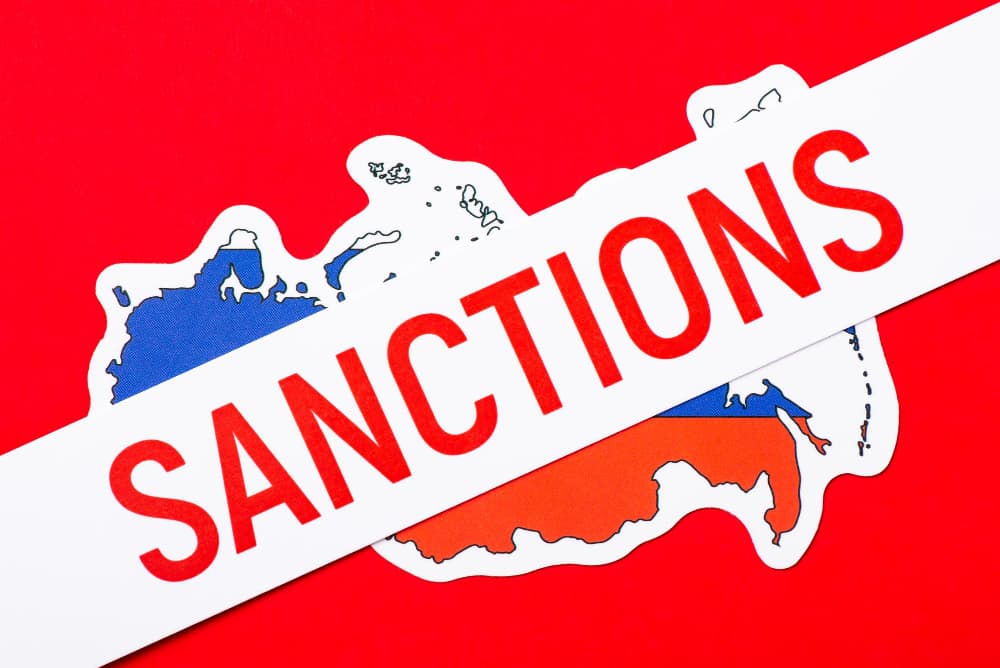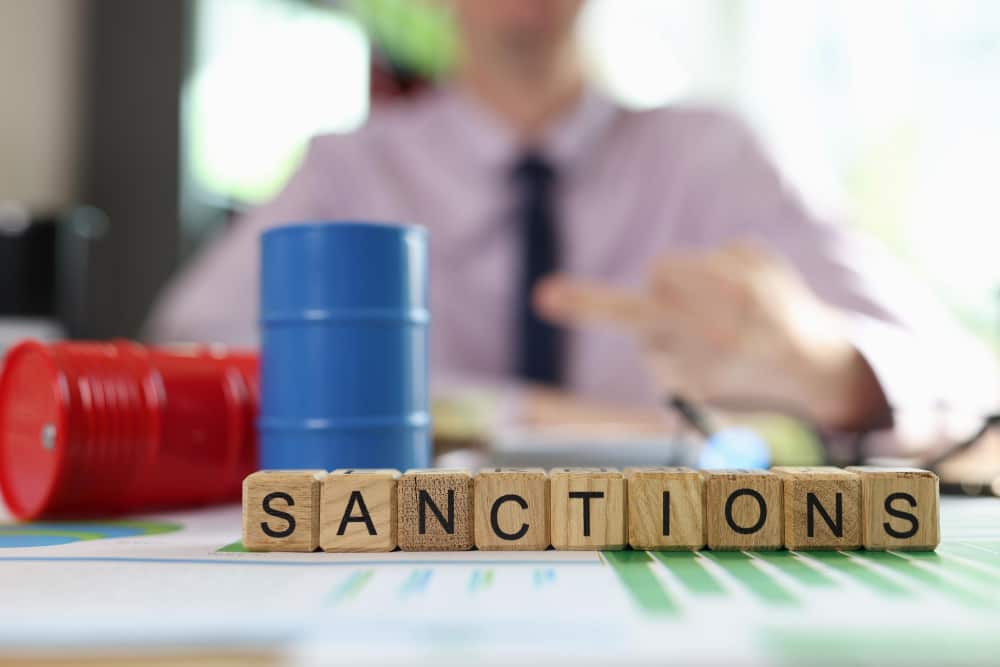Introduction
The United States has one of the largest economies in the world, and as a result, a lot of effort is put in place to protect its economy. The Office of Foreign Assets Control, also known as OFAC, is a financial intelligence and enforcement agency in the United States. OFAC is the department of the US Treasury responsible for enforcing economic and trade sanctions.
The United States imposes these sanctions against countries and groups of individuals, representing a crucial intersection of Cross-Border & International Law and specialized Legal Practice & Specialization. OFAC carries out its activities against foreign states and other organizations and individuals, such as terrorist groups, which it considers a threat to the country’s national security. The agency administers and makes sure that its economic and trade sanctions are enforced based on the US Foreign Policy and the country’s national security goals. These sanctions are targeted toward foreign countries and regimes, terrorists, international narcotics traffickers, any entity that engages in activities related to mass destruction, and any threats to the Foreign Policy of the United States.
This article will consider OFAC Sanctions, Sanctions Compliance, and Sanctions law and identify what amounts to an OFAC sanction violation and the consequences of an OFAC sanction violation. Upon completion of this article, you will understand what financial sanctions are, economic sanctions, sanctions law, and other OFAC enforcement actions.
History of OFAC
The involvement of the US Treasury Department in economic sanctions against foreign states can be traced back to the 1812 War. OFAC’s earliest predecessor was the Foreign Funds Control, established by Executive Order 8389 in 1940. The authority to establish this body was derived from the Trading with the Enemy Act of 1917.
After the entry of China into the Korean War, President Harry Truman blocked all Chinese and North Korean assets subject to US jurisdiction. In addition to this, the Division administered specific regulations and orders. In 1962, the Division of Foreign Assets Control became the Office of Foreign Assets Control by a treasury department order.
Who Authorizes OFAC?

OFAC is authorized by Congressional legislation. However, the president of the United States can use national emergency powers to perform certain actions.
The agency publishes lists of designated individuals and companies controlled by or acting on behalf of targeted countries. It lists individuals, groups, and other entities, such as terrorists and narcotics traffickers.
The agency also tries to ensure anti-money laundering compliance. This means that it tries to prevent money laundering.
What are OFAC Sanctions?

The Office of Foreign Assets Control carries out several sanctions programs. The agency publishes a list of individuals and companies owned by or acting for targeted countries. The agency lists individuals and groups as “Specially Designated Nationals” or “SDNs.” The agency’s 50 Percent Rule states that “the property and interests in property of any entity of which 50 percent is owned by one or more blocked persons is considered blocked.”
The agency frequently publishes new economic sanctions enforcement guidelines. OFAC primary sanctions may be imposed against countries, businesses, or individuals considered guilty of international crimes. The agency requires US citizens and other entities within the state to comply with all its sanctions.
Additionally, secondary sanctions are designed to prevent third parties from trading with countries subject to sanctions issued by another country.
OFAC-sanctioned jurisdictions include; Iran, North Korea, Cuba, Syria, Russia, Venezuela, Hong Kong, and Libya. Another sanctioned country is Belarus.
The agency prohibits unauthorized exports and reexports and imposed various sanctions to Iran like ban on procurement opportunities, receiving assitance related to exports and imports from bank etc.
Consequences of OFAC Violation

Irrespective of the continuous effort of the agency to prevent OFAC sanction violations, these sanctions are still being violated. A question that frequently arises is, “what are the consequences of OFAC sanction violation ?”. There are a lot of OFAC sanctions violations. Whenever you engage in OFAC sanctions violation, there is always a penalty. The sanctions agency encourages sanction violators to report voluntarily when they violate sanctions to reduce their punishments.
The agency treats any violation of its sanctions as a potential threat to the nation’s security and foreign relations. Part 501 of the Code of Federal Regulation provides for reporting procedures and penalties. Section 501.76 provides for pre-penalty notice. If the director has any reason to believe that a violation has occurred and determines that further civil proceedings are warranted, then the director shall issue a pre-penalty notice. This notice would include; the facts of the violation, the regulations violated, and the monetary penalty amount.
The Pre-penalty notice shall inform the offender that they have the right to make a written representation, either denying or admitting the violation or contending that the penalty ought to be less than it is. If this person fails to respond to a Pre-penalty notice, the director may proceed with issuing a penalty notice. This code defines an apparent violation as any possible violation of US economic sanctions laws. It further details its monetary penalties as follows;
1.$1,000; for a transaction valued at less than $1,000;
2. $10,000 for a transaction valued at $1,000 or more but less than $10,000;
3. $25,000 for a transaction valued at $10,000 or more but below $25,000;
4. $50,000 for a transaction valued at $25,000 or more but below $50,000;
5. $100,000 for a transaction valued at $50,000 or more but under $100,000;
6. $200,000 for a transaction valued at $100,000 or more but below $200,000;
After OFAC investigates to determine if there has been any form of violation, the investigation may lead to one of the following actions;
1). No action: If the agency considers that there is not enough evidence to conclude that there has been a violation, then no action will be taken.
2). Request for Additional Information: If the agency finds that it needs any additional information regarding the apparent violation, it may request more information from the party.
3). If the agency believes that there is insufficient evidence to finalize a violation or is satisfied that the finding of a violation or a civil monetary penalty is not necessary under the circumstances. However, if OFAC believes the conduct could result in a violation in any other circumstance or the party is not complying with the agency’s regulations diligently, it can issue a cautionary letter. This letter will provide details of OFAC’s concerns about the party’s conduct. This letter represents the final enforcement response to an apparent violation unless OFAC later finds any additional related violations or other relevant facts.
4). Finding of Violation: If the agency concludes that there has been a violation and considers it relevant to document this violation and also concludes that the party’s conduct warrants an administrative response but that a civil monetary penalty is not the most appropriate response in the case, it may issue a Finding of Violation which identifies the violation.
This Finding of Violation may also convey the agency’s worries about the violation. This Finding of Violation is the final enforcement response to the violation unless the agency subsequently gets additional related violations. A Finding of Violation will give the party involved an opportunity to respond to the allegation. After considering the response received, the agency will inform the party of its final decision about the apparent violation.
5). Civil Monetary Penalty: If OFAC concludes that there has been a violation and, based on its analysis, concludes that the conduct required the imposition of a monetary penalty, it may impose a civil monetary penalty. The imposition of a civil monetary penalty is a final determination of the violation and is the final civil enforcement response to the violation. The agency allows an accused party to respond to its determination that a violation has occurred before a final penalty is imposed.
6). Criminal Referral. In certain circumstances, the agency may refer the matter to law enforcement agencies for criminal investigation and/or prosecution. Any apparent sanctions violations which the agency refers to another body for criminal investigation and/or prosecution may be subject to OFAC civil penalty or other administrative action.
There are other administrative actions that the agency may take.

For instance, License Denial, Suspension, Modification, or Revocation.
The agency may also order the party involved to cease exercising such conduct prohibited by any of the sanctions programs it enforces. This is when OFAC has a reason to believe that the party has engaged in such conduct or that such conduct is ongoing or may recur.
In 2020, parties who broke the Trading with the Enemy Act were made to pay fines of about $90,000 per violation. Any violation of the International Emergency Economic Powers Act comes with penalties of about $308,000 per violation. Similarly, any violation of the Foreign Narcotics Kingpin Designation Act costs about $1.5 million per violation. The seriousness of the penalty depends on the crime and the number of prior convictions. This is why people are discouraged from engaging in OFAC sanctions violations.
The agency can bring enforcement actions against sanctions violators for apparent violations of anti-money laundering obligations. As stated above, an individual may also face a civil penalty. Any civil violation is a “strict liability” offence, meaning that a company or individual can be liable for committing a civil violation regardless of knowledge or the degree of fault.
In 2009, the agency announced a $639 million agreement with Standard Chartered Bank. The purpose of this agreement was to settle the bank’s civil liability for an apparent violation of United States economic sanctions.
The agency encourages anyone who may have violated OFAC-administered regulations to disclose this to OFAC voluntarily. Doing this will result in a reduction in the amount of any proposed civil penalty. It also tries to discourage any apparent violation of OFAC regulations.
Conclusion
OFAC enforces sanctions imposed by the US government based on the US Foreign Policy and national security objectives.
We need to desist from OFAC sanction violations, as there are a lot of consequences of OFAC sanction violations. When you ignore the agency’s instructions and still engage in OFAC sanction violation, you must learn the consequences of OFAC sanction violation the hard way. It is best to heed the instructions and report to the agency voluntarily whenever you notice any OFAC sanction violation.
LegaMart is a platform that helps individuals find and hire seasoned lawyers. The Legamart team comprises qualified lawyers who handle complex transactions with ease. If you want to know more about the consequences of OFAC sanction violation, or you need knowledge of OFAC law and how the agency ensures the enforcement of its sanctions, then we have you covered. Our lawyers would give you professional advice on the consequences of OFAC sanction violation and any other OFAC-related issue.
You simply need to go to our lawyer’s directory, fill out an inquiry, and await our response. We have a lot of qualified lawyers who would advise you on the enforcement procedures for any violation, what constitutes an apparent violation, and many other issues. You can also ask a question on our community page, and we will respond as soon as possible.




